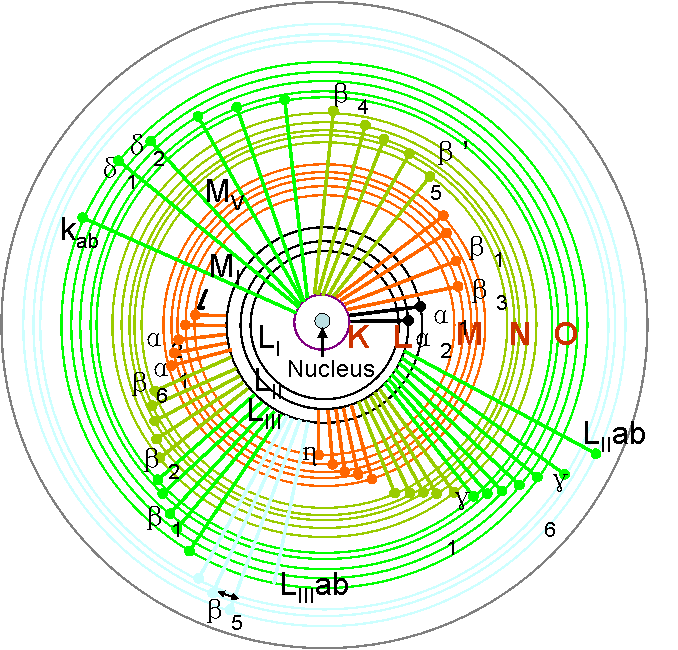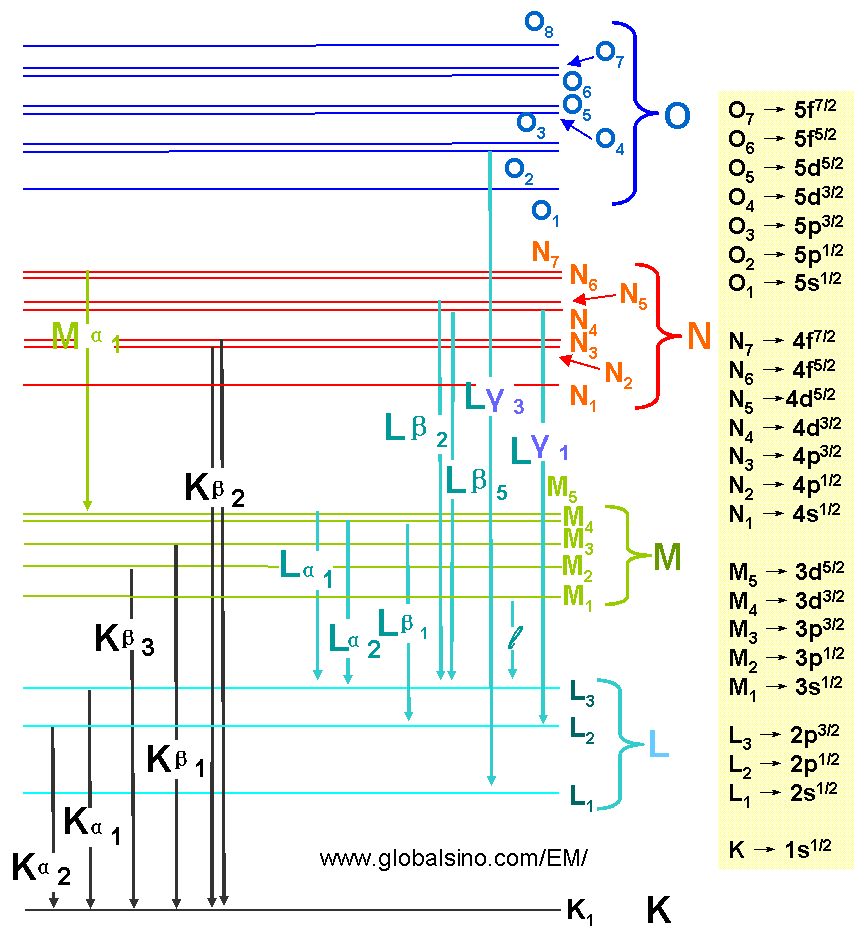|
|
Possible Electron Transitions Giving Rise to Characteristic X-Rays
- Practical Electron Microscopy and Database -
- An Online Book -
|
|
https://www.globalsino.com/EM/
|
|
This book (Practical Electron Microscopy and Database) is a reference for TEM and SEM students, operators, engineers, technicians, managers, and researchers.
|
=================================================================================
Figure 4676a schematically shows some details regarding possible electron transitions that give rise to K and L characteristic X-rays. However, only a small fraction of transistions generates sufficient X-rays for detection in electron microscopes and we don’t need to worry about some details because either the X-ray detectors can’t usually distinguish between the X-rays from different subshells or some transitions are not detectable by EDS in electron microscopes, except at the highest X-ray energies. Therefore, K, L, and M shells as well as α and β notations are about all we need to remember in our EDS experiments. For your convenience, Figure 4676b schematically shows the transitions in a different way.

Figure 4676a. Some possible electron transitions that give rise to K and L characteristic X-rays.

Figure 4676b. Schematically showing the transitions in a different way.
|
=================================================================================
The book author (Dr. Liao) welcomes your comments, suggestions, and corrections, please click here for submission. You can click How to Cite This Book to cite this book. If you let Dr. Liao know once you have cited this book, the brief information of your publication will appear on the “Times Cited” page. This appearance can help advertise your publication.
|
|

